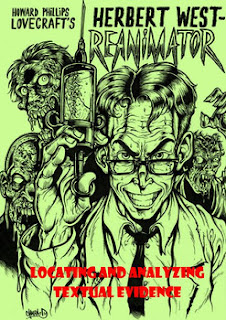Engaging Young Readers with Mysteries
My colleague has great results reading Agatha Christie's And Then There Were None with her advanced 8th graders. The reading level is well within the abilities of upper middle school and the kids really seem to enjoy it. And you have the added bonus of leading students on to her other novels, or have reading circles choose another of her novels to follow up.
And of course, there's the grandmaster of all detectives, Sherlock Holmes, who's been quite popular in the movies and on TV lately. I've had great success with The Hound of the Baskervilles--my students really enjoy trying to figure out this moody and atmospheric whodunit. The reading level is more demanding than Christie but still accessible. Of course, you may need to provide some background info on Victorian England, but this might be useful if you segue into another British novel like The Time Machine. If you're intrigued, check out my study guide by clicking onto the image below:
A fun extension activity might be to group students and give them an unfamiliar object, then ask them to glean what information they can by applying Holmes' deductive technique.
Want to really challenge your kiddos? Give them Edgar Allan Poe's Murders in the Rue Morgue--a bizarre account of mayhem and monkey business in Paris. Shorter than a traditional novel, Rue Morgue presents high school students with complex language and inexplicable clues, neither of which is enough to stump the remarkable Auguste Dupin, the very first literary detective. Here's a link to my study guide:
Are you already planning your reading program for the up-coming school year? Fire your students up about reading by introducing them to some of the greatest classic mysteries on your classroom shelf.









